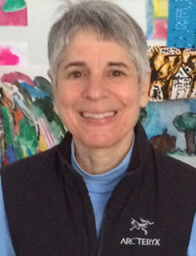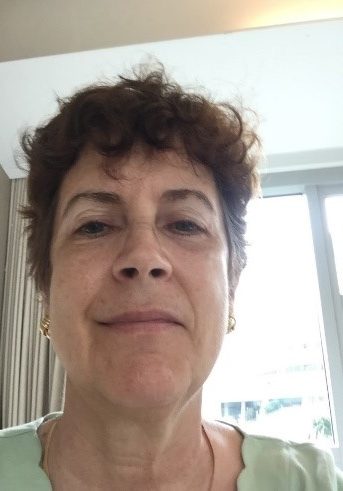Transition to Adulthood: Housing, employment and other disability issues w/ Carol Conway and Susan Lombardo
Focus on Family and Disability Seminar Series – 2019
When:
October 8, 2019,12-2pm, Tuesday
Where:
UNC Chapel Hill School of Social Work Auditorium, 325 Pittsboro St, Chapel Hill, NC 27599 Directions and Parking
**LIVE STREAMING AVAILABLE**
Continuing Education:
2 Hours (details)
Fees:
We are streamlining our pricing options !
All in-person lectures will be offered at a discount and include lunch to encourage face-to-face engagement and community building.
**If you can’t make it to UNC-SSW we still offer the Live-Stream option for only $10 more
In-Person – $25.00
Live-Stream – $35.00
*Discount for family members/caregivers – $15.00
**Current UNC-SSW students, staff, faculty, field instructors, and task supervisors** Fee Waived
Everyone is welcome: scholarships also available. Contact Carol Ann Hincy <chincy@email.unc.edu>
Description:
Transition-aged adults with disabilities and other special needs have the same wants, needs and desires as anyone else. However, they face many barriers to being able to fully participate in their communities. Lack of affordable housing, employment at living wages, and community-based supports all make it more difficult for people with disabilities and special needs to live the lives they want. This workshop will identify these barriers as well as supports and accommodations to promote successful employment, affordable housing and other services to help these adults participate more fully in inclusive community living.
Trainers:
 Susan Lombardo (aka, Purveyor of Hope) believes that having meaningful and productive work activity is the most “normalizing” part of life for all of humanity and people with disabilities should not excluded. Susan has worked in the field of vocational rehabilitation counseling and secondary education for over 35 years and served the needs of youth and adults with disabilities as a counselor, educator, collaborator, job developer, and job coach/mentor. Prior to her recent retirement from the Chapel Hill Carrboro City Schools district, Susan was employed as the Transition Facilitator at East Chapel Hill High School. Currently, Susan is part of the team with Kidpower North Carolina – https://www.kidpower.org/what-we-do/locations/north-carolina/, a non-profit international organization that strives to “provide effective and empowering child protection, positive communication, advocacy, personal safety, and self-defense skills for all ages, abilities, cultures, beliefs, genders, and identities, locally and around the world.”
Susan Lombardo (aka, Purveyor of Hope) believes that having meaningful and productive work activity is the most “normalizing” part of life for all of humanity and people with disabilities should not excluded. Susan has worked in the field of vocational rehabilitation counseling and secondary education for over 35 years and served the needs of youth and adults with disabilities as a counselor, educator, collaborator, job developer, and job coach/mentor. Prior to her recent retirement from the Chapel Hill Carrboro City Schools district, Susan was employed as the Transition Facilitator at East Chapel Hill High School. Currently, Susan is part of the team with Kidpower North Carolina – https://www.kidpower.org/what-we-do/locations/north-carolina/, a non-profit international organization that strives to “provide effective and empowering child protection, positive communication, advocacy, personal safety, and self-defense skills for all ages, abilities, cultures, beliefs, genders, and identities, locally and around the world.”
 Carol Conway is a retired researcher and is the current chair of Parent Advocates for Adult Children with Intellectual and/or Developmental Disabilities in North Carolina (PACIDNC). This grassroots advocacy organization provides monthly meetings with parents and other stakeholders to explore and promote best practices in affordable housing for adults with intellectual and other developmental disabilities.
Carol Conway is a retired researcher and is the current chair of Parent Advocates for Adult Children with Intellectual and/or Developmental Disabilities in North Carolina (PACIDNC). This grassroots advocacy organization provides monthly meetings with parents and other stakeholders to explore and promote best practices in affordable housing for adults with intellectual and other developmental disabilities.
Learning Objectives
At the conclusion of this workshop, participants will be able to:
1. Identify at least 3 primary benefits of work-based learning experiences for youth with disabilities in transition.
2. State the 2 guiding principles that drive a well matched work experience for youth with disabilities in transition.
3. Identify 3 advantages and 3 disadvantages of disclosing disability to an employer.
4. Identify at least 1 key strategy for involving family members and/or other stakeholders to support youth with disabilities to engage work experience.
5. Enumerate at least 3 ways in which housing demand can be fulfilled.
References
- Bigby, C., Bould, E., & Beadle‐Brown, J. (2016). Conundrums of supported living: The experiences of people with intellectual disability. Journal of Intellectual and Developmental Disability. https://doi.org/10.3109/13668250.2016.1253051
- DiGennaro Reed, F. D., Strouse, M. C., Jenkins, S. R., Price, J., Henley, A. J., & Hirst, J. M. (2014). Barriers to Independent Living for Individuals with Disabilities and Seniors. Behavior analysis in practice, 7(2), 70–77. doi:10.1007/s40617-014-0011-6
- Woodman, A. C., Mailick, M. R., Anderson, K. A., & Esbensen, A. J. (2014). Residential transitions among adults with intellectual disability across 20 years. American journal on intellectual and developmental disabilities, 119(6), 496–515. doi:10.1352/1944-7558-119.6.496